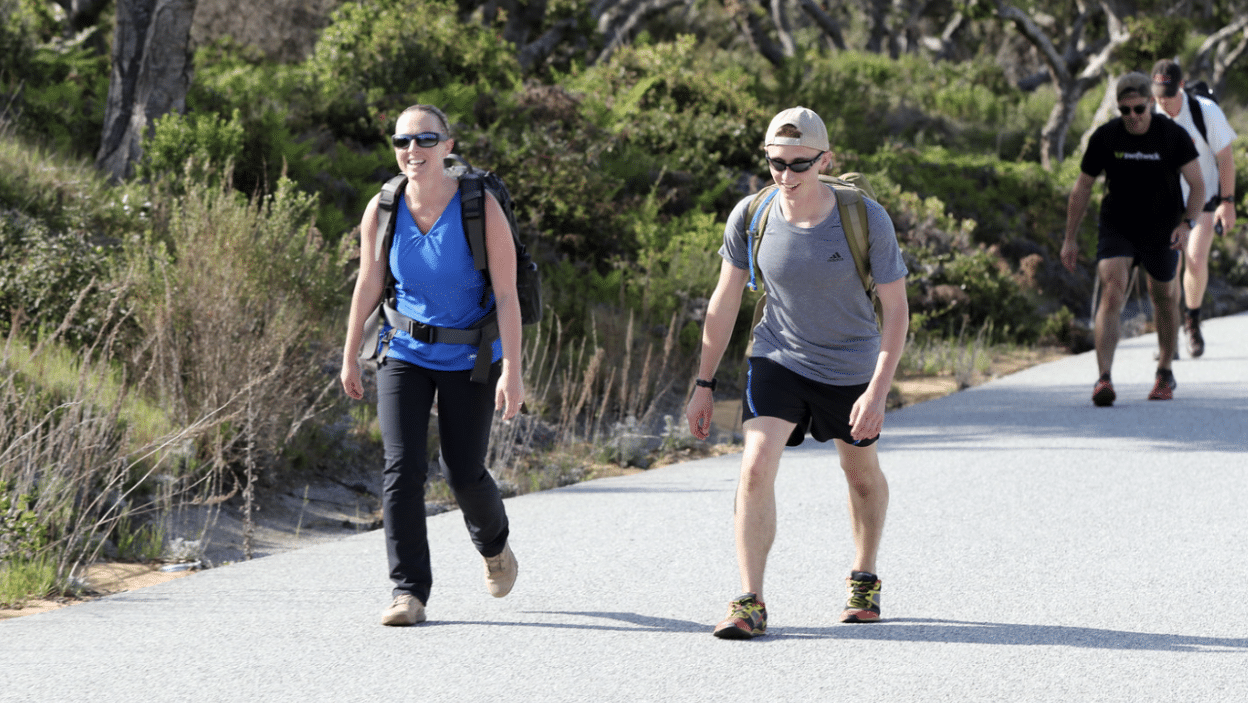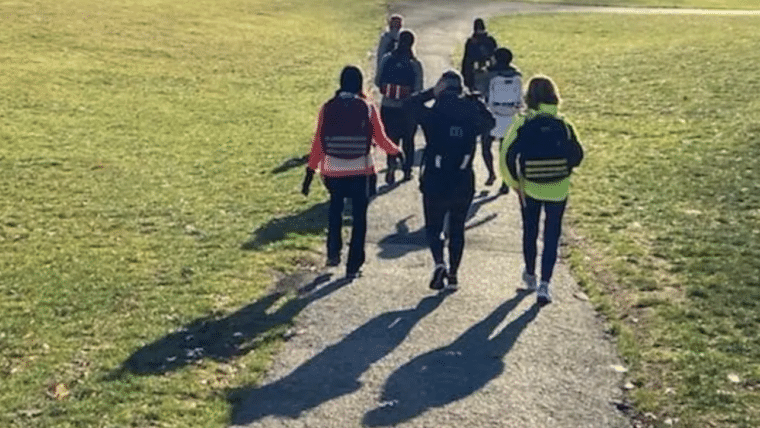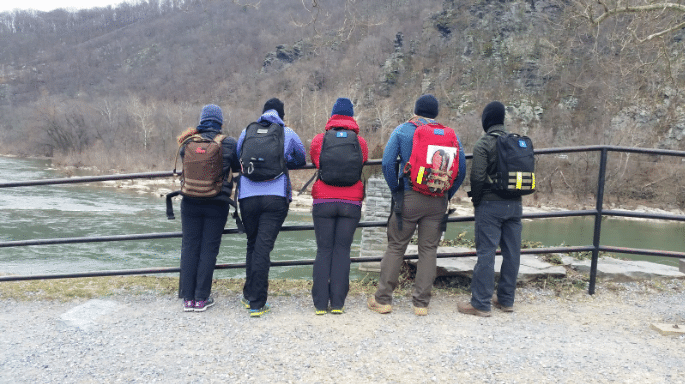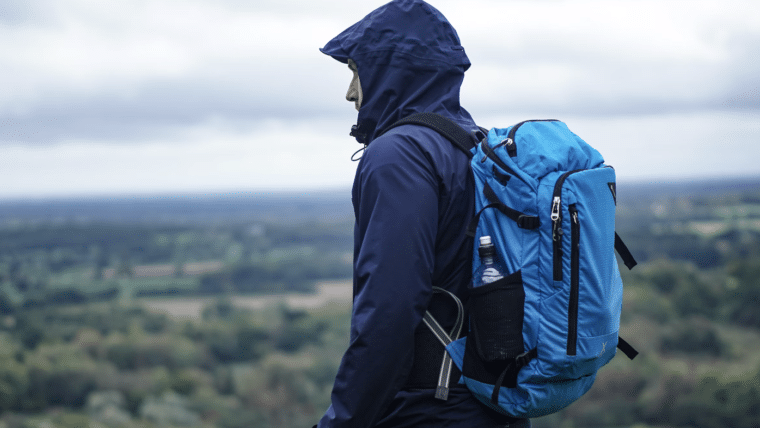In recent years, rucking has gained significant popularity as a challenging and effective form of exercise. Originally embraced by the military, rucking involves walking or hiking while carrying a weighted backpack, companies like GORUCK have helped bring rucking to the mainstream.
While it may seem like a simple activity, rucking offers a myriad of benefits that extend beyond traditional forms of exercise. Here are five benefits of rucking that may surprise you:
- Improved Cardiovascular Health:
When it comes to cardiovascular fitness, many people immediately think of high-intensity activities like running or cycling. However, rucking provides a low-impact alternative that offers remarkable benefits for heart health.
Walking with a loaded backpack engages your cardiovascular system, increasing heart rate and circulation. The added weight on your back intensifies the effort required to maintain a steady pace, effectively improving cardiovascular endurance over time.
Rucking also enables you to tailor the intensity to your fitness level, making it an accessible exercise option for individuals of all ages and abilities. - Enhanced Strength and Endurance:
Rucking is a full-body workout that targets various muscle groups, including the legs, core, back, and shoulders. The weighted backpack serves as a resistance tool, challenging your muscles and contributing to both strength and endurance gains.
As you walk or hike with the added load, your leg muscles, especially the quadriceps, calves, and glutes, are engaged in a continuous effort to support and propel your body forward. Additionally, the muscles in your upper body, including your core and back, work to stabilize the weight and maintain proper posture.
Over time, regular rucking can lead to increased muscle tone and strength, helping you build a robust physique. (Take a look at this article where we dive more into rucking’s impact on building muscle.) - Weight Loss and Calorie Burn:
Rucking is an excellent exercise for those looking to shed excess weight or maintain a healthy body composition. The combination of the added weight on your back and the physical effort involved in walking or hiking creates a calorie-burning powerhouse.
The number of calories burned during rucking depends on factors such as your weight, pace, and the terrain. On average, a person weighing around 150 pounds can burn approximately 400-600 calories per hour of rucking. (More details on rucking a caloric burn can be found here.)
The sustained effort required for rucking promotes fat loss and helps maintain a healthy metabolism, making it an effective tool for weight management. - Improved Posture and Joint Health:
In today’s sedentary lifestyle, poor posture and joint problems have become increasingly prevalent. Rucking can help counteract these issues by promoting better posture and joint health.
Carrying a weighted backpack on your back requires proper alignment of your spine, leading to a more upright posture. The continuous engagement of your core muscles during rucking also helps stabilize and support your spine, reducing the risk of back pain. Moreover, the controlled impact and weight-bearing nature of rucking provide low-impact stress to your joints, promoting their strength and flexibility.
By regularly rucking, you can improve your posture and mitigate the negative effects of prolonged sitting, ultimately enhancing your overall musculoskeletal health. - Mental Resilience and Stress Reduction:
Beyond the physical benefits, rucking offers significant advantages for mental well-being. Engaging in this activity allows you to connect with nature, providing a sense of calm and tranquility that helps reduce stress and anxiety. (Want a deeper dive into the mental benefits of Rucking? Check out this article.)
The repetitive nature of walking or hiking with a loaded backpack also promotes mindfulness, enabling you to focus on the present moment and clear your mind of distractions. Rucking can serve as a form of active meditation, allowing you to find solace in the rhythm of your steps and the natural surroundings.
Additionally, the challenges posed by rucking, such as carrying a heavy load or traversing challenging terrain, require mental resilience and determination. Overcoming these challenges builds mental toughness, fostering a sense of accomplishment and self-confidence. Rucking provides an opportunity to push past your limits and develop a resilient mindset that can carry over into various aspects of your life.
Moreover, rucking can also be a social activity, allowing you to connect with like-minded individuals and build a supportive community. Participating in rucking events or joining rucking clubs can provide a sense of camaraderie and motivation as you share your experiences and challenges with others.
The social aspect of rucking can further contribute to your mental well-being by reducing feelings of isolation and promoting a sense of belonging.
Rucking is a versatile and effective exercise that offers surprising benefits for both physical and mental well-being. From improved cardiovascular health and enhanced strength to weight loss and better posture, rucking provides a comprehensive full-body workout. It promotes mental resilience, reduces stress, and fosters a sense of connection with nature and community.
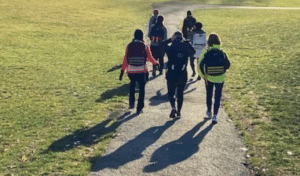
Whether you are a fitness enthusiast looking to diversify your routine or someone seeking a low-impact yet challenging exercise option, rucking can be a valuable addition to your fitness regimen. Remember to start gradually, choose an appropriate backpack weight, and gradually increase the intensity and duration of your rucking sessions to avoid overexertion or injury. Embrace the surprising benefits of rucking and embark on a journey towards improved physical fitness, mental resilience, and overall well-being.

